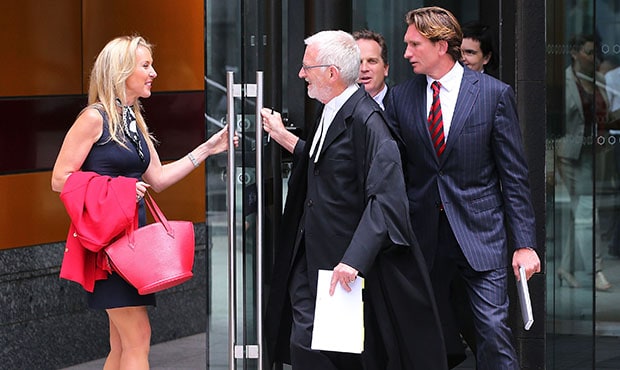ESSENDON coach James Hird has accused ASADA of manipulating AFL rules, but the anti-doping body says it lawfully reaped the benefits of the League's power to compel players to speak.
Hird is fighting to discredit ASADA's joint investigation with the AFL for a second time after a Federal Court judge found the probe to be legal in September.
His barrister Peter Hanks QC on Monday said the Australian Sports Anti-Doping Authority had illegally recruited the AFL to force Essendon players to answer questions.
But ASADA's barrister Tom Howe QC said Essendon employees, including Hird, knowingly and willingly divulged details of the club's 2012 supplements program to both ASADA and the AFL.
"The interviewees plainly and clearly, unmistakably understood they were giving these answers to and in the earshot of ... both the AFL and ASADA," he told the full bench of the Federal Court.
He said the anti-doping body had no coercive powers over the Bombers players, and did not enforce any.
Rather it reaped the benefits of the coercive powers of the AFL by working legally in lock-step with the League in its investigation, Mr Howe said.
AFL players and coaches are contractually required to answer questions put to them by the League or face penalties.
Mr Howe said Hird and the players had legal representatives present in the interviews and could have declined to answer questions and face separate punishment by the AFL.
But Mr Hanks said ASADA was cynical in its recruitment of the AFL into a joint investigation, with the sole purpose of compelling players to speak.
"The AFL's presence was plainly desired by ASADA in order to provide the compulsion," he said.
"By having the AFL present the gate was opened to that disclosure.
"It's to circumvent, to walk around the limits on its power.
"It was very convenient and efficient, but it was unlawful."
Mr Hanks said ASADA ran the interviews, asking the bulk of the questions with the AFL "topping and tailing" and asking its own questions at the end.
He said the legislation governing ASADA at the time of the investigation in 2013 entitled it to be assisted by and delegate to specific individuals but those did not include a sporting body like the AFL.




